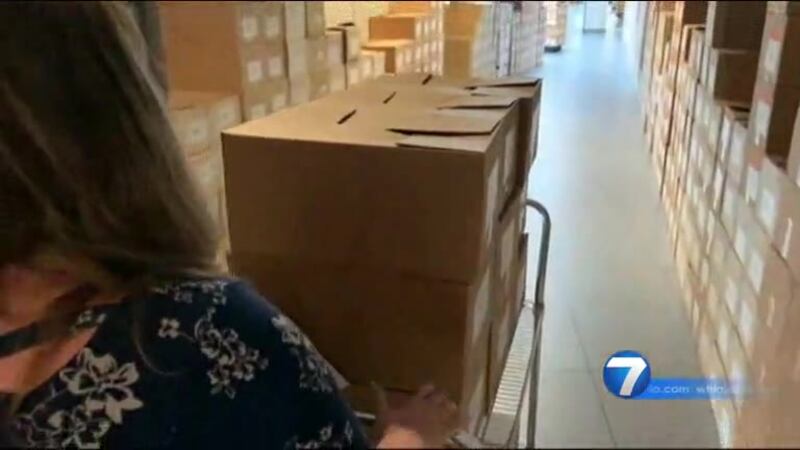The ATF National Tracing Center, the nation's only crime gun tracing facility, has helped law enforcement investigate two heinous incidents that have left indelible marks on the psyche of the area.
The mission of the Bureau of Alcohol, Tobacco, Firearms and Explosives facility in Martinsburg, West Virginia, is to learn the history of firearms used in criminal activity.
RELATED
>> Gun used in Detective Del Rio’s slaying traced to Butler County man
>> Ammo buy links man to Oregon District shooter
The tracing center's work has paid off in the Dayton area:
Delano Wells, 50, of Trenton, is charged with making false statements on a federal firearms form, according to the U.S. Attorney Southern District of Ohio’s Office. Wells is accused of buying and later selling the three firearms law enforcement seized the night of the Nov. 4 shooting of Dayton Police Detective Jorge Del Rio, authorities said.
Del Rio, struck by bullets fired from one of those weapons, died Nov. 7.
The center's work also led to the arrest of Ethan Kollie, the friend of Connor Betts authorities said supplied the body armor, gun parts and ammo used in the deadly Oregon District shooting in early August.
In the cases of Wells and Kollie, both are accused of lying on federal firearms forms that staff at the tracing center searched in their efforts to help local law enforcement agencies track the life of weapons used in crimes.
SEE ALSO: Justice Department rolls out program to fight gun violence
Tracing center workers respond to thousands of requests a day. They sort files by hand because there is no online database. The lack of a database means a weapon-buyer match based on a search can take up to 12 days.
The tracing center now will get an assist from the federal government's Project Guardian, an initiative trotted out Wednesday to better enforce the nation's gun background check system, help in the coordination of state and federal gun cases and ensure that prosecutors can quickly update databases to show when a defendant can’t possess a firearm because of mental health issues.
As part of the program, U.S. prosecutors will coordinate with state and local law enforcement officials to consider potential federal charges when a suspect is arrested for weapons possession, is believed to have used a gun to commit a violent crime or drug-trafficking offense or is suspected of being a violent gang member.





